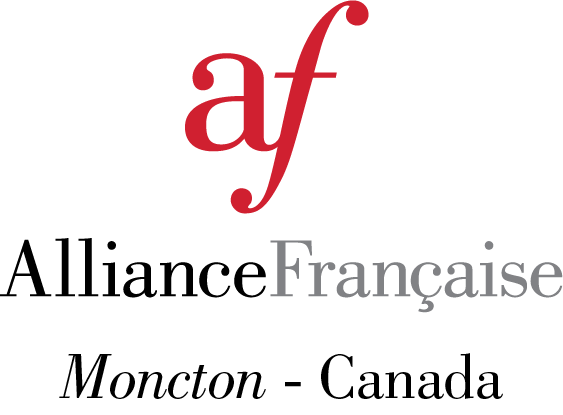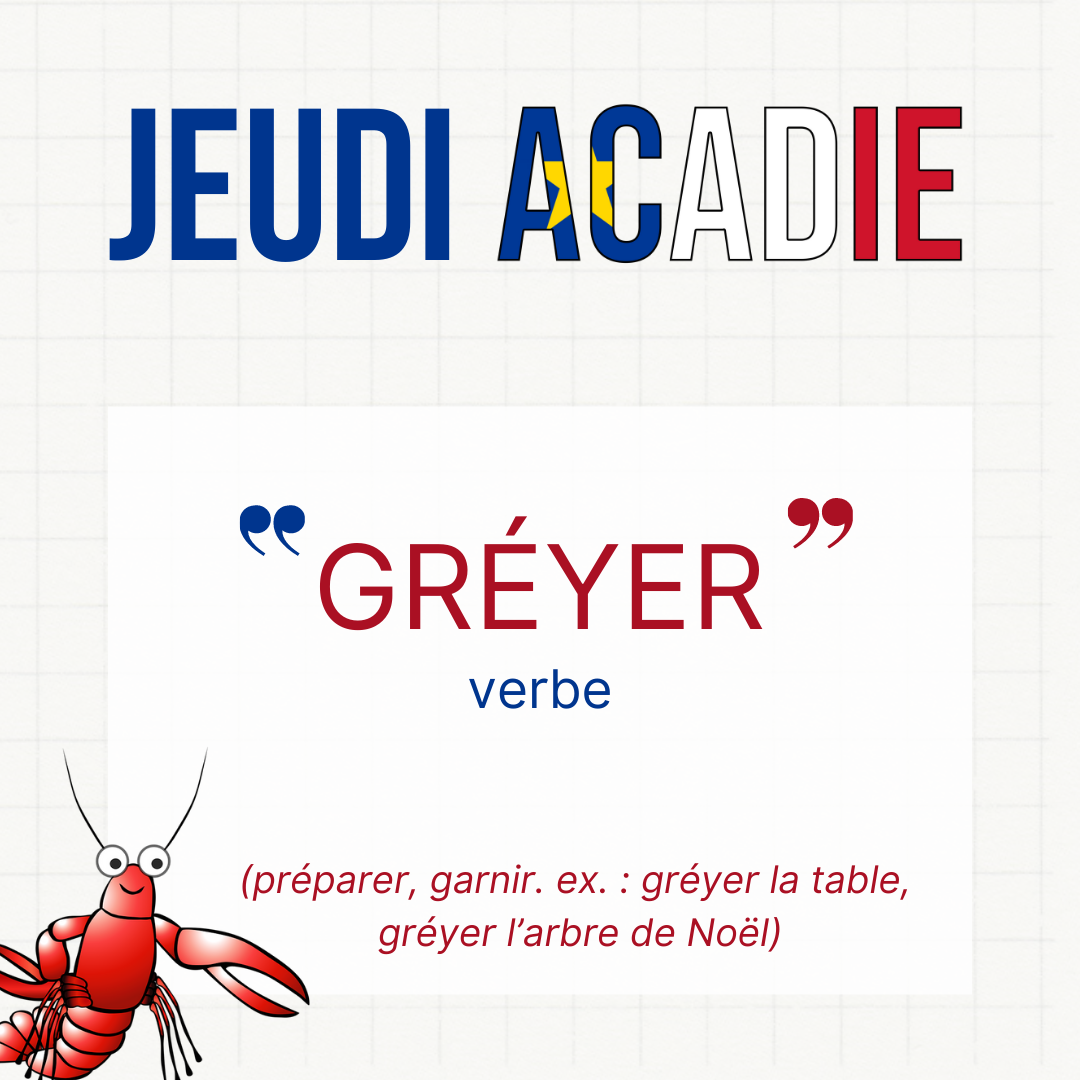
Jeudi Acadie
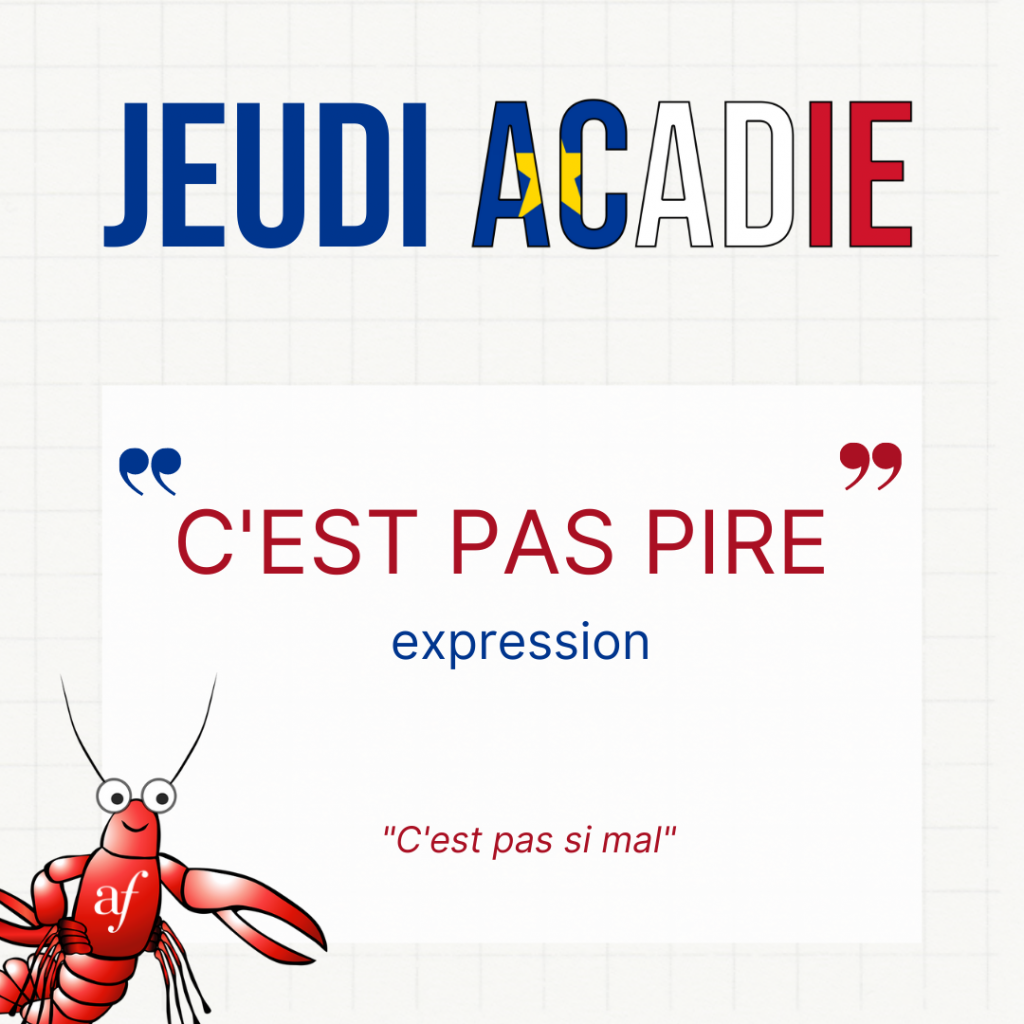
The expression « c'est pas pire », is is also said in Québec, but we hear it a lot around here! '' C'est pas pire '' means '' it's not that bad, it's alright ''.
For example : Les cours en ligne? Oh... c'est pas pire !
.
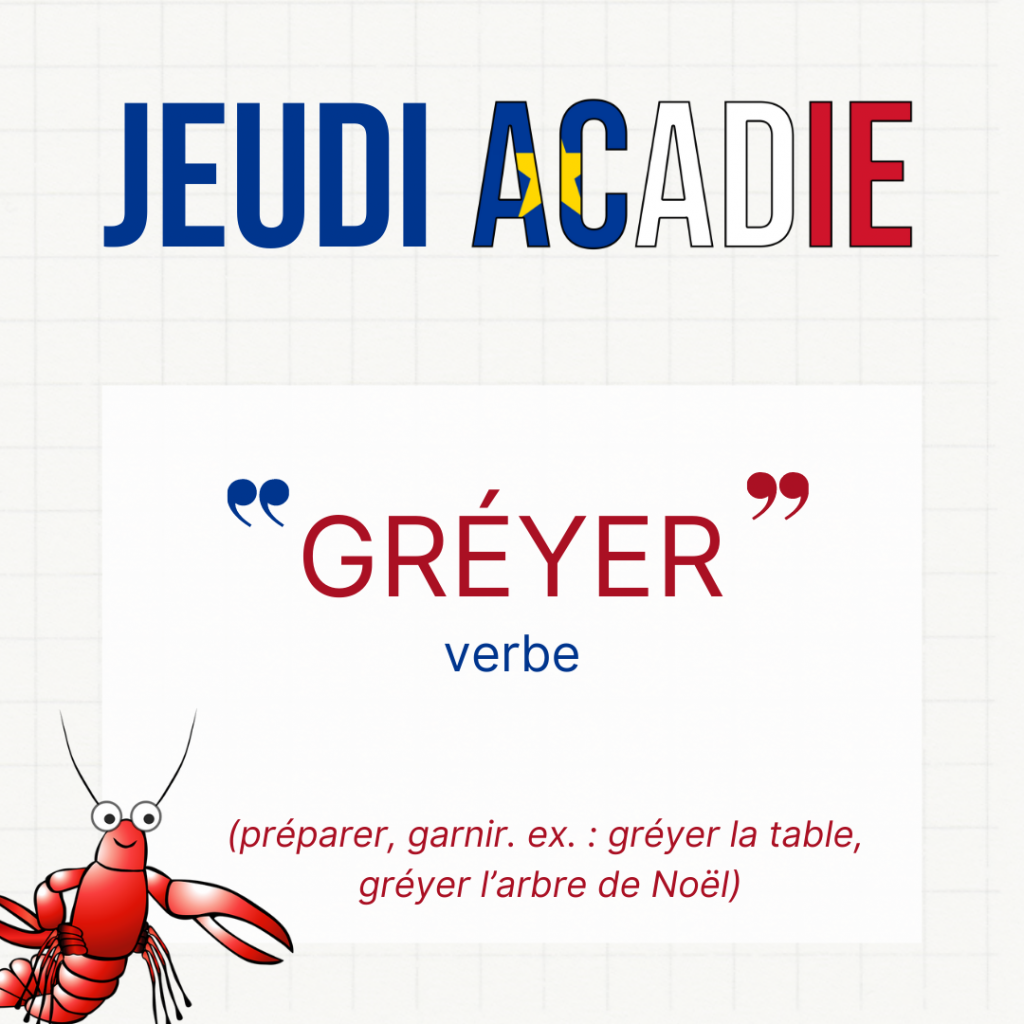
The verb « gréyer » means ‘’to prepare, to garnish‘’. You can also use it as ‘’ se gréyer ‘’ which means ‘’to prepare yourself’’.
For example : Greyez-vous pour la tempête de demain! (Get ready for tomorrow’s snowstorm!) 🌨
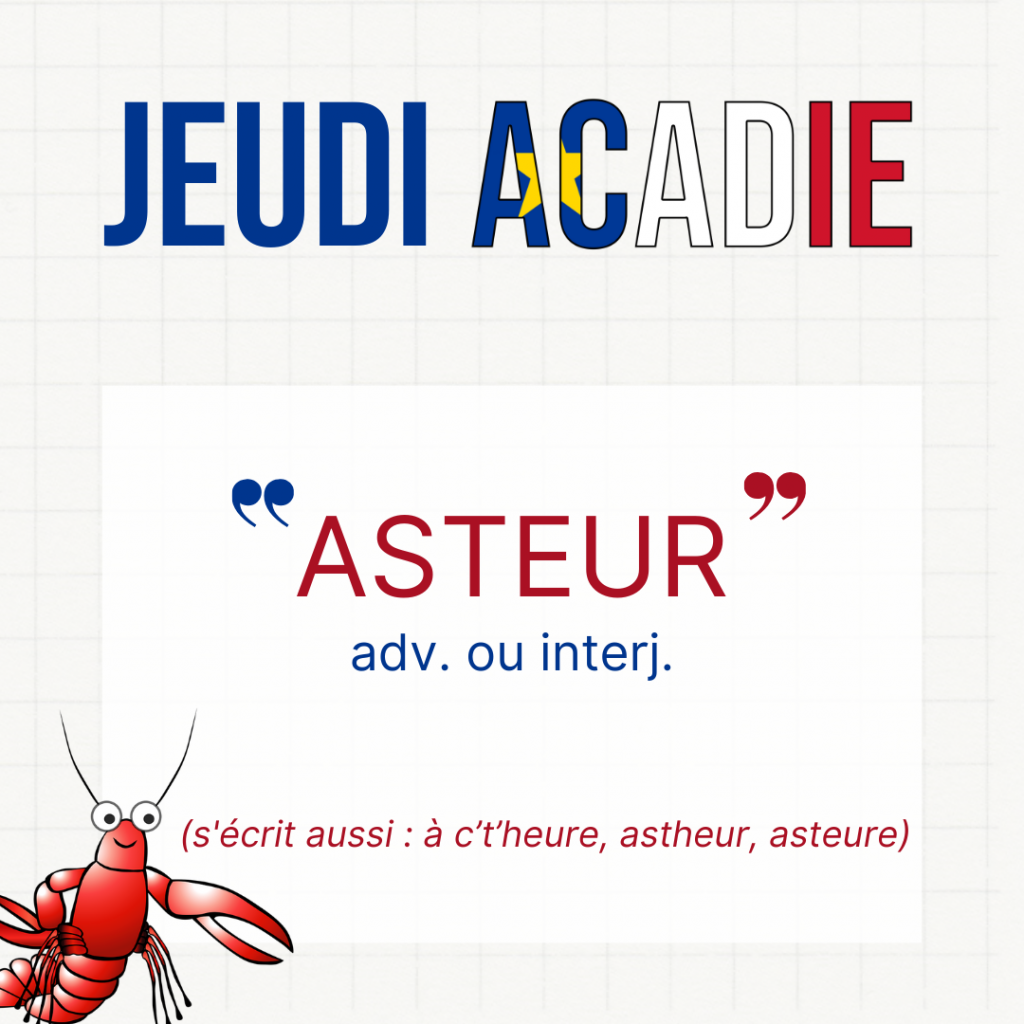
Also written à c’t’heure, astheur, asteure…. which means « today, right now, at the moment ». It’s a derivative of « à cette heure » (at this time).
For example : les inscriptions pour la nouvelle Session ouvrent asteur!! (Registration for the new session opens « asteur », right now!) 😉
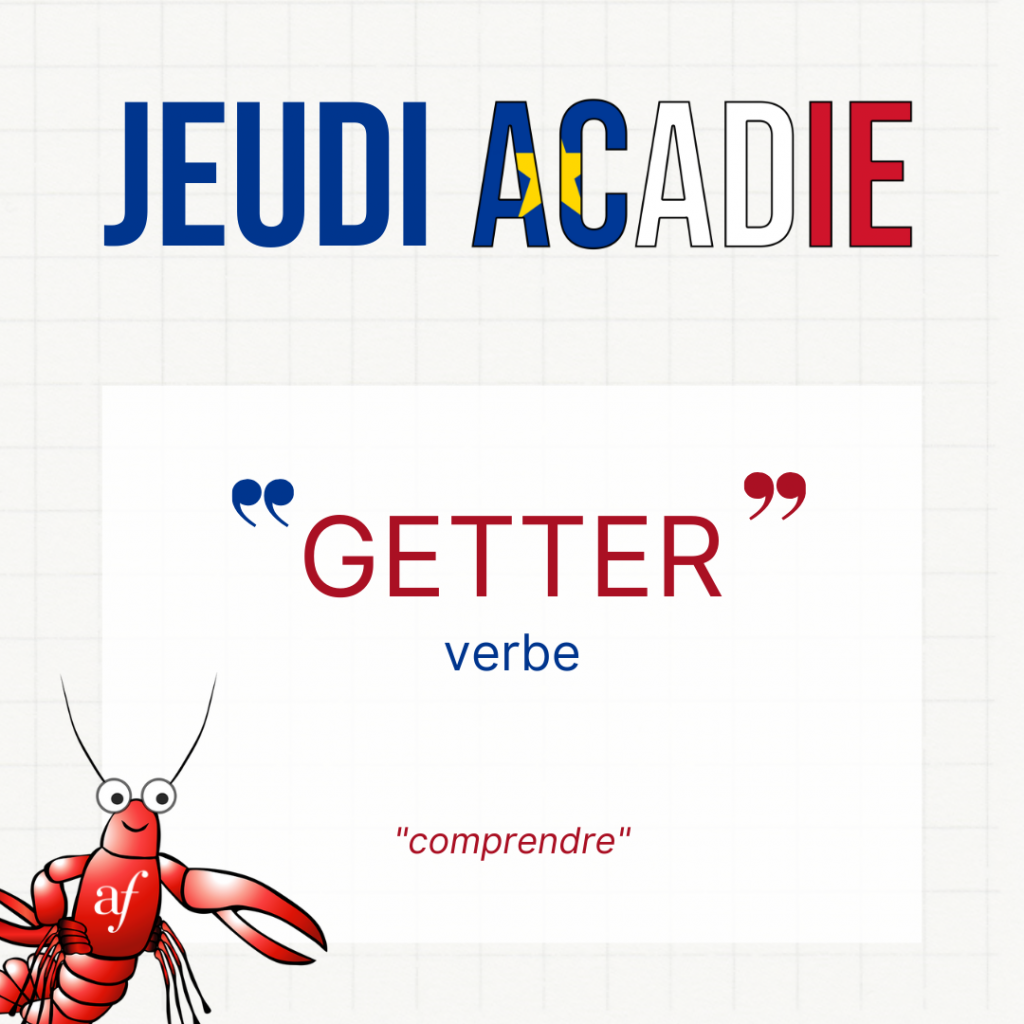
The verb « getter», which is the French variation of the english verb “ to get “ (comprendre).
For example : Get-tu la grammaires française ?! (Do you understand French grammar?!)
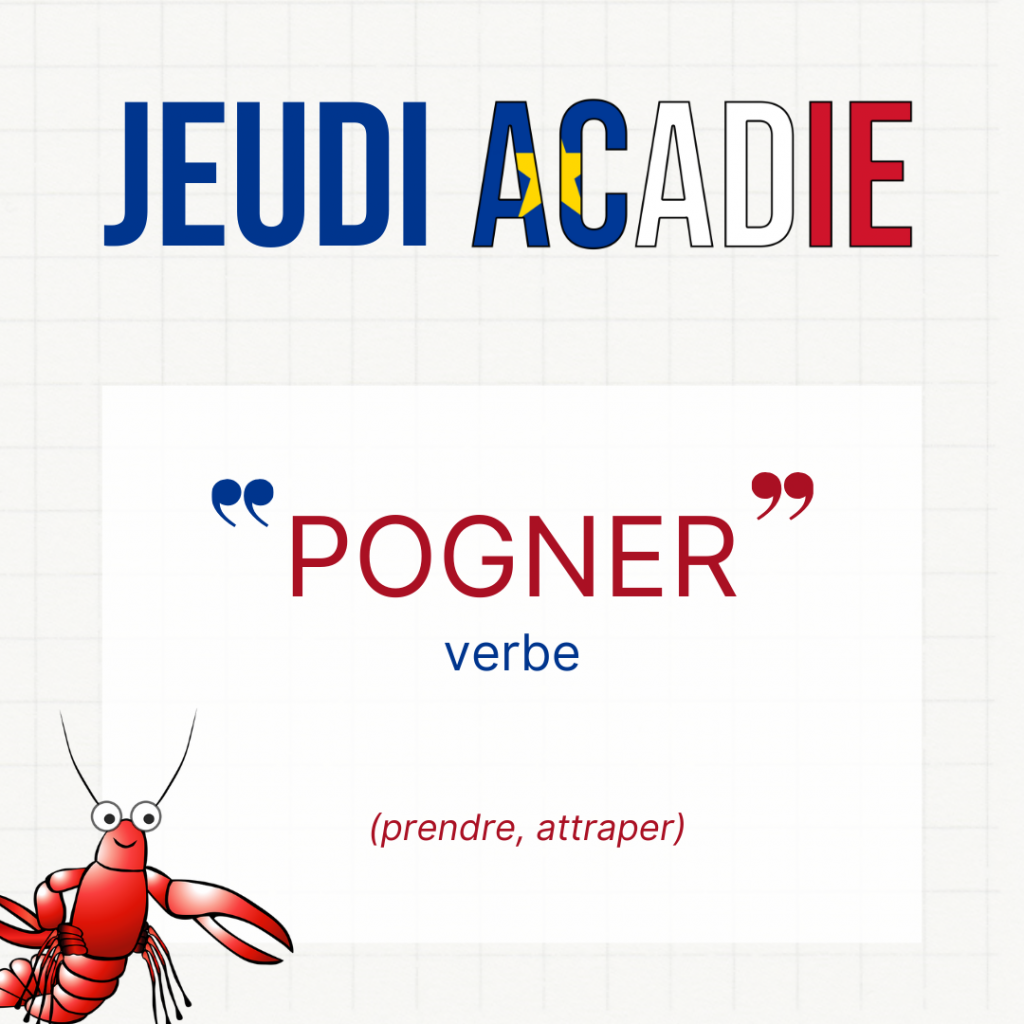
The verb « pogner » means ‘’to take’'.
For example : ''Pognes-moi un café'', ou : ''Pognes-toi des bonnes bottes d'hiver !'' (''Buy me a coffe!'' or " Get yourself some good winter boots!'') 🌨
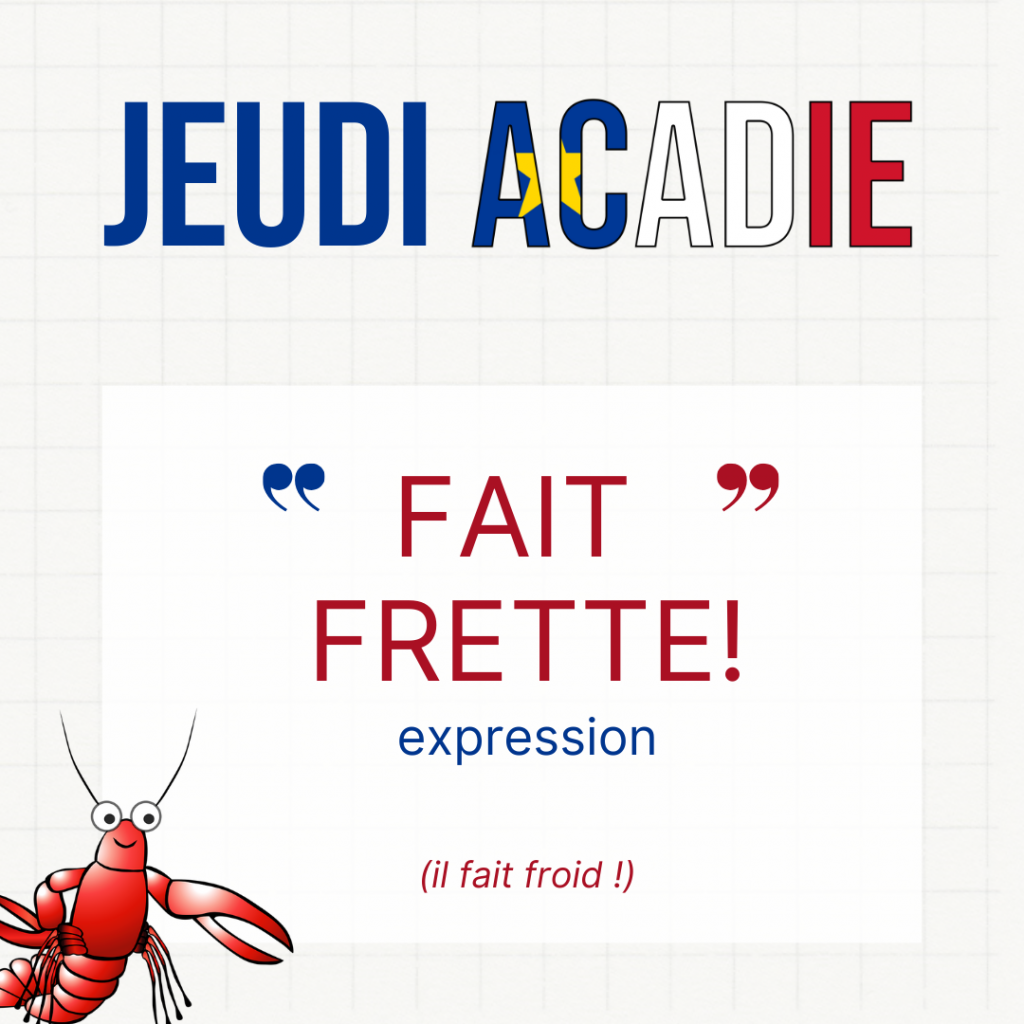
The phrase « fait frette », means ‘’wow it's cold!’' (usually when talking about the weather). Fun fact: '' Fait frette '' is colder than '' it's cold ''.
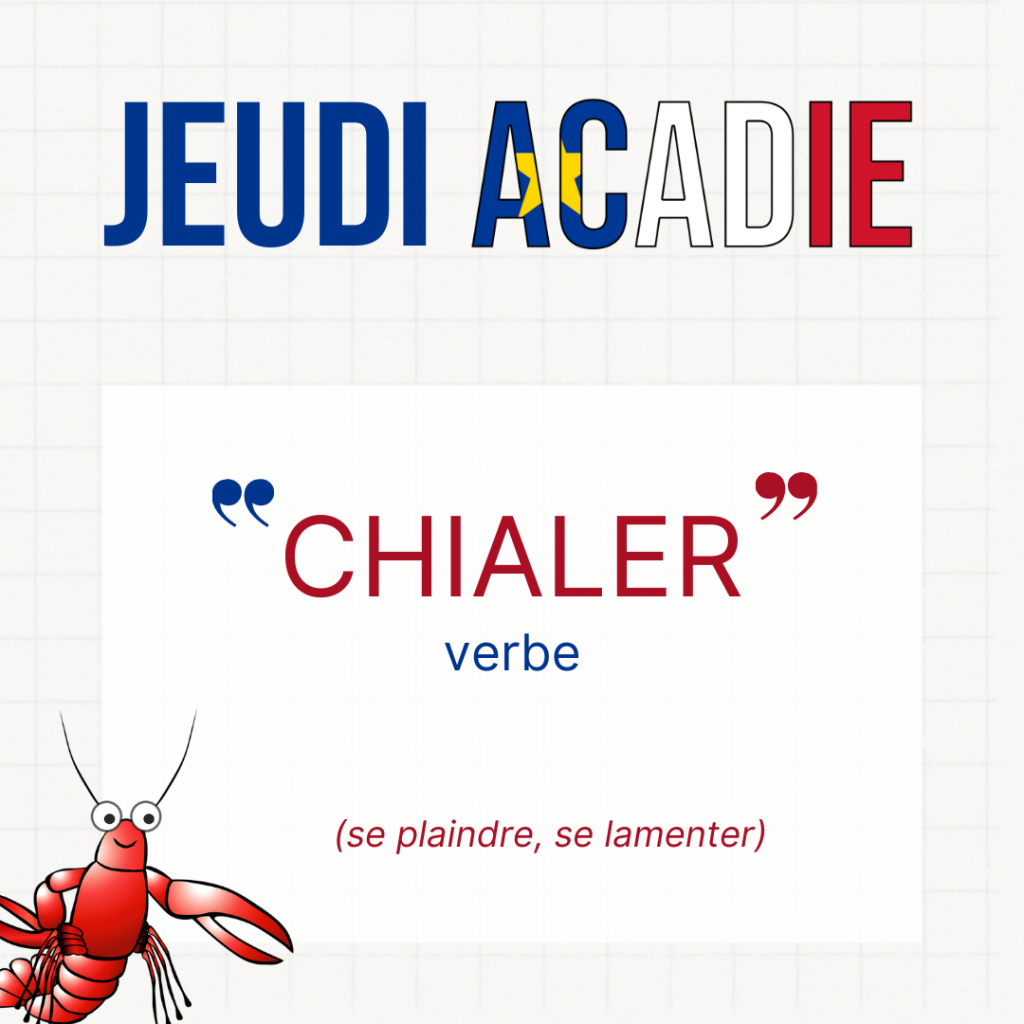
The word « chialer » means ‘’to complain’' (for example: '' arrête de chialer, l'été arrive / stop complaining, summer is coming!'' ).
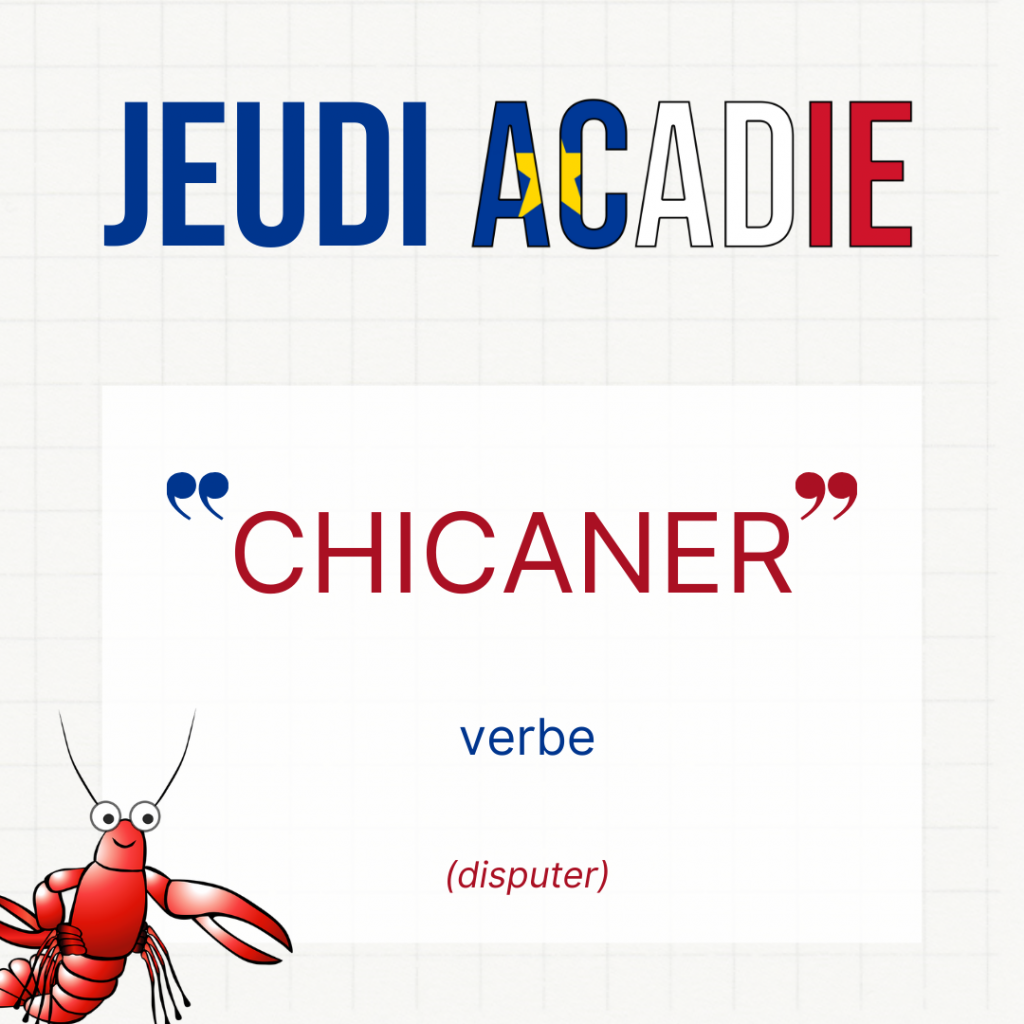
The word « chicaner », which means ‘’to fight, to argue’' (for example: ''Elles sont encore en train de se chicaner sur le débat pain au chocolat-chocolatine / They are still arguing about the fact we say pain au chocolat or chocolatine'' ).
.
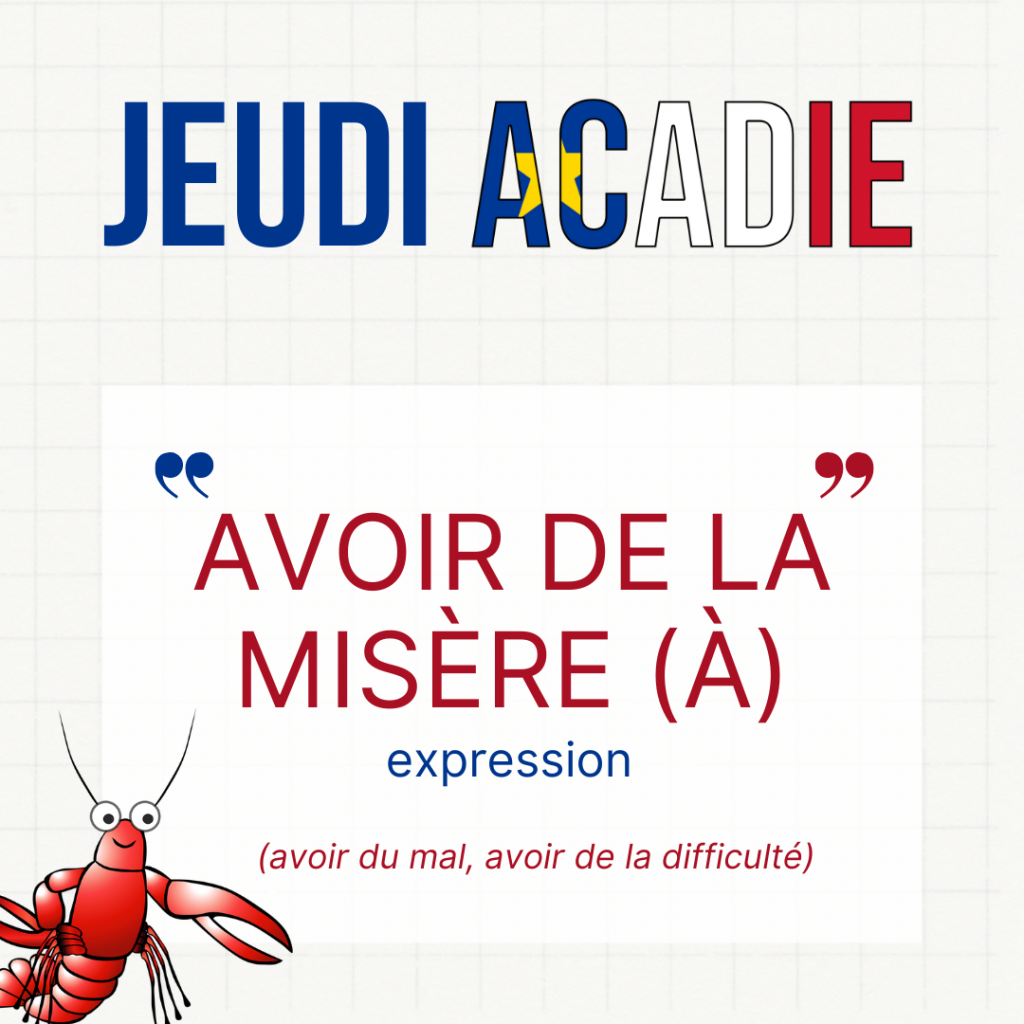
The phrase « avoir de la misère » means ‘’to struggle with, to have difficulty'' (for example '' J'ai de la misère à comprendre le passé simple ! / I'm stugglin to understand past tense '').
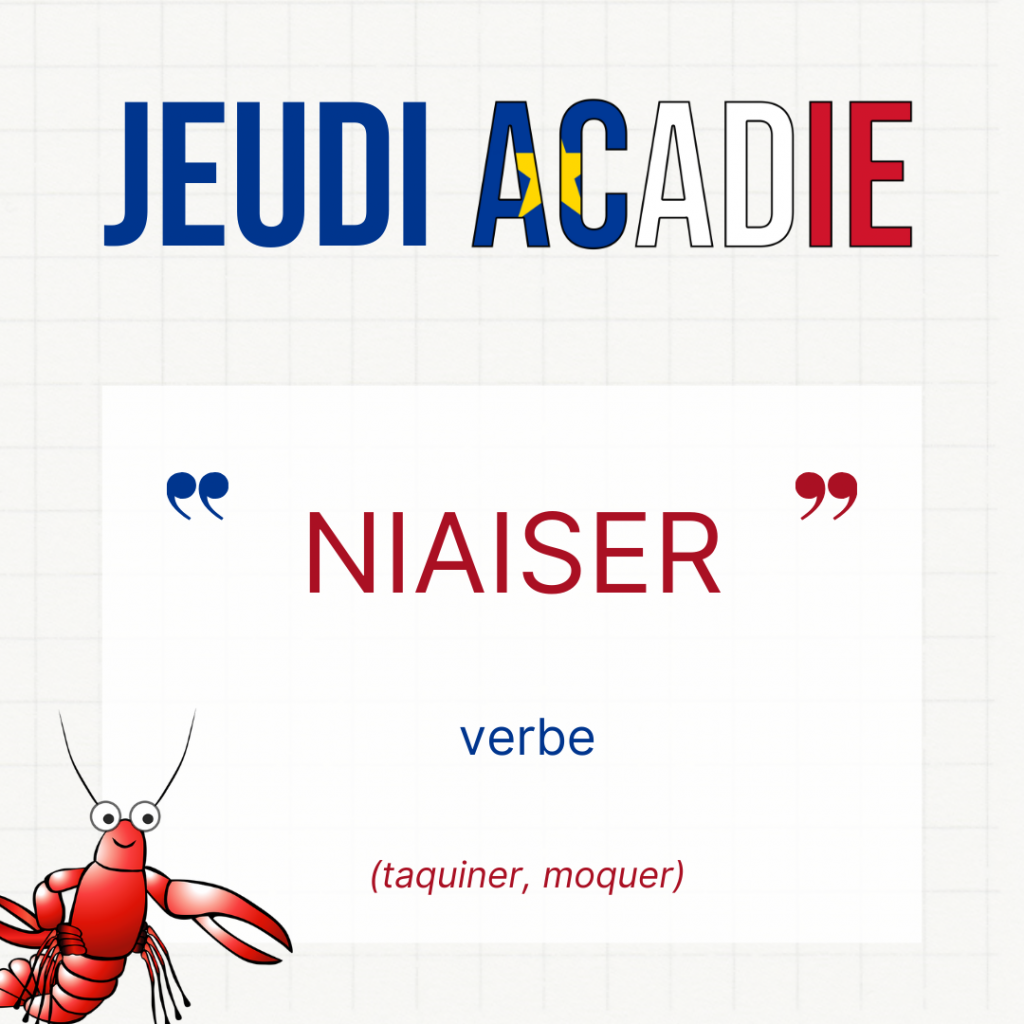
The verb « niaiser », which means ‘’to tease '', '' to make fun of someone '' (but in a nice way apparently!)
For example ''Les frais d'inscription de cet été sont offerts ? Mais arrêtes de me niaiser!/Registration fees are free this Summer? Stop, you're kidding me!''
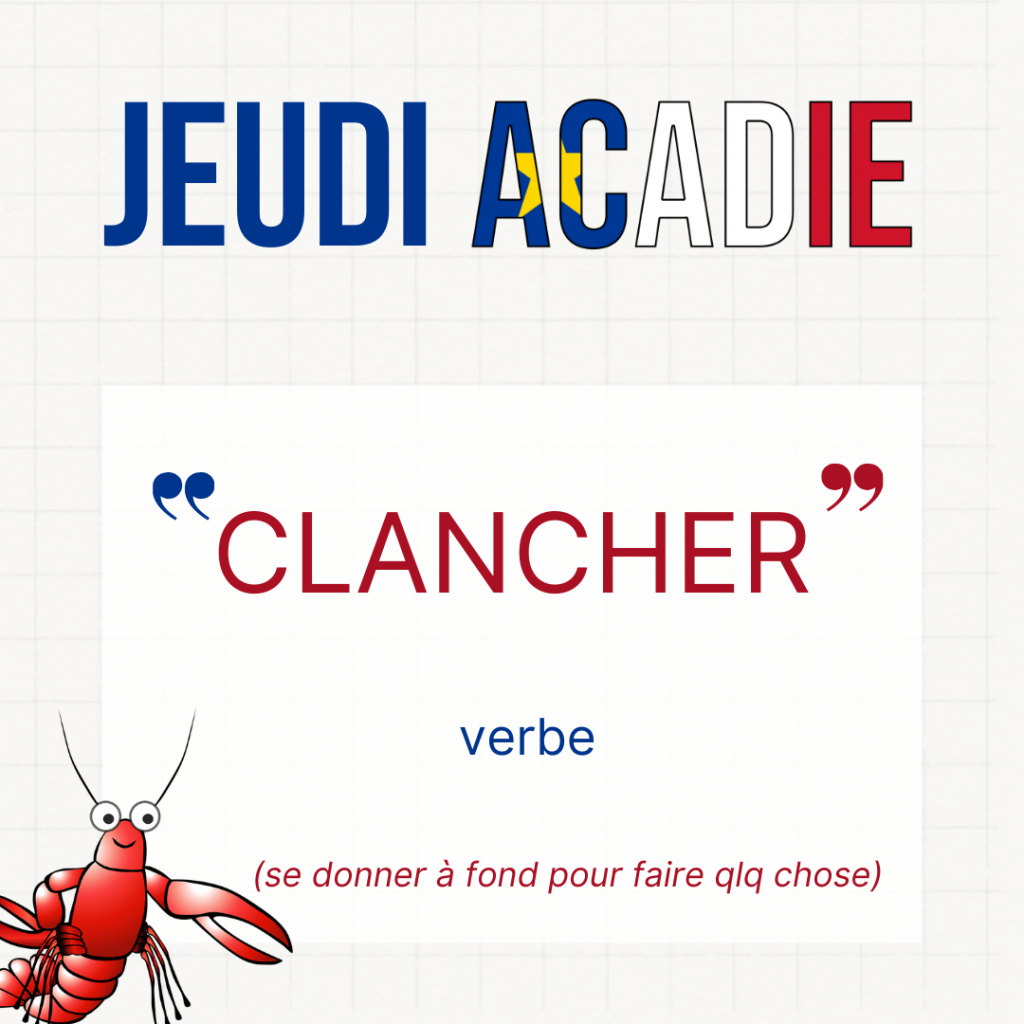
The verb “clancher” which means “to give everything you have”. For example, if you need to finish a work project for tonight but it is already midday, you can say something like “Je vais clancher mon projet cet après-midi” (I will give everything I have to finish this project this afternoon.).
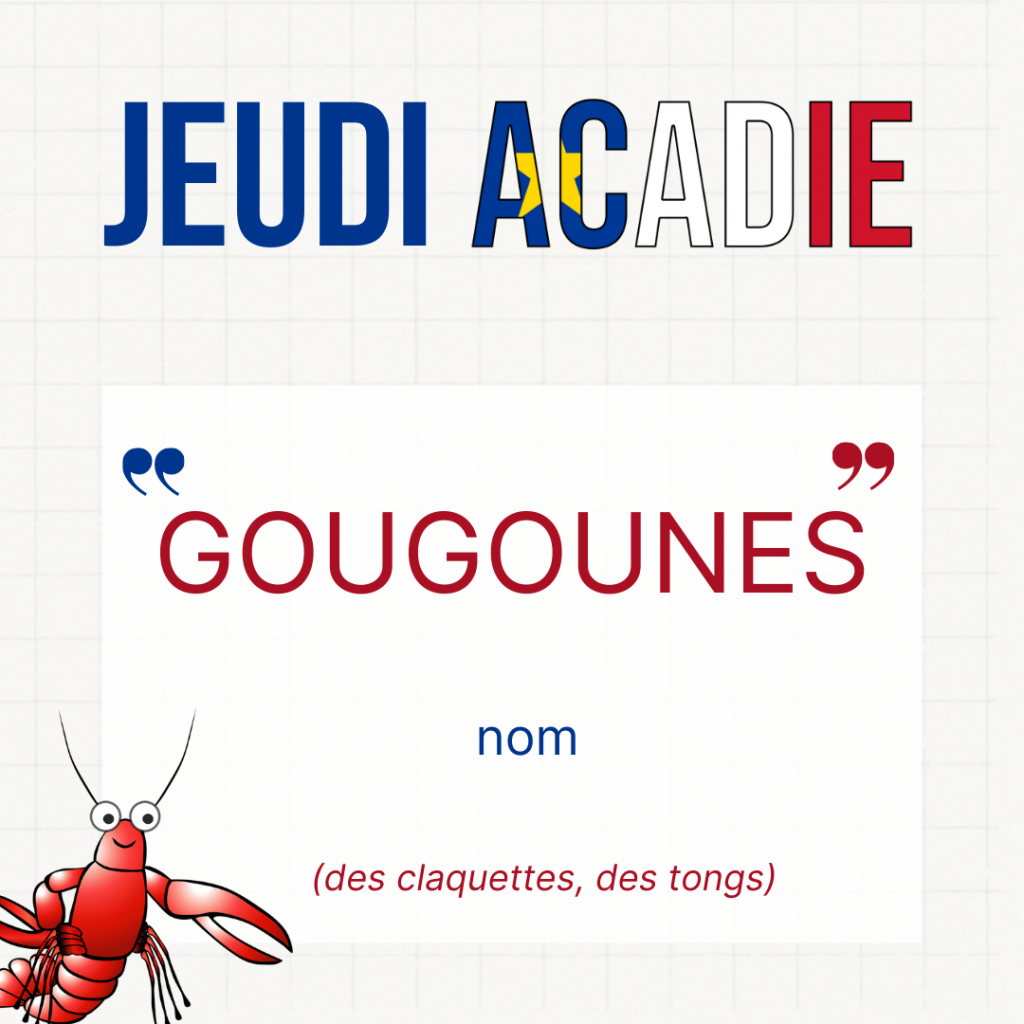
The noun “gougounes” which means “flip-flops”. This word can be very useful in the summer. For instance, you can say « Il me faut une paire de gougounes pour aller à la plage » (I need a pair of flip-flops to go to the beach.)
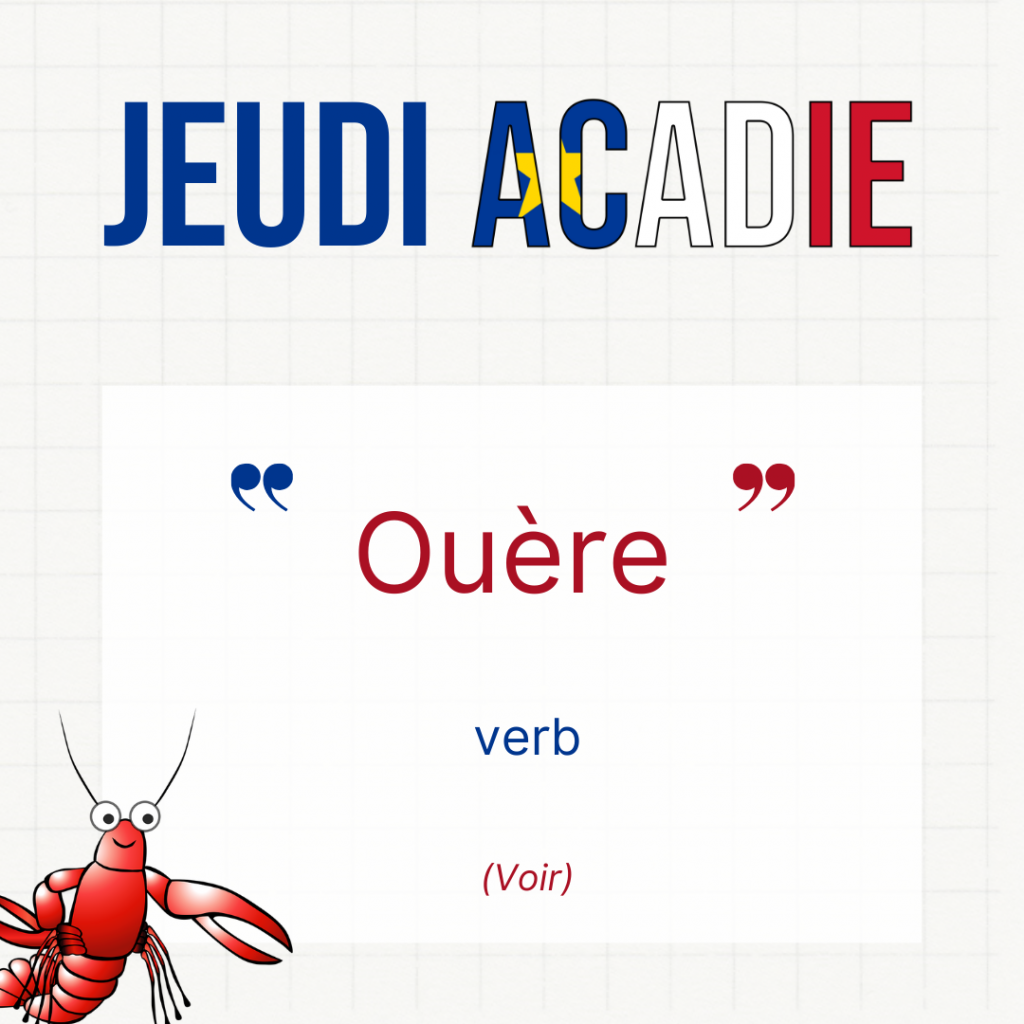
The verb “ouère” means “voir” (to see). For exemple, you can say « Je voudrais te ouère. » meaning “I would like to see you”.
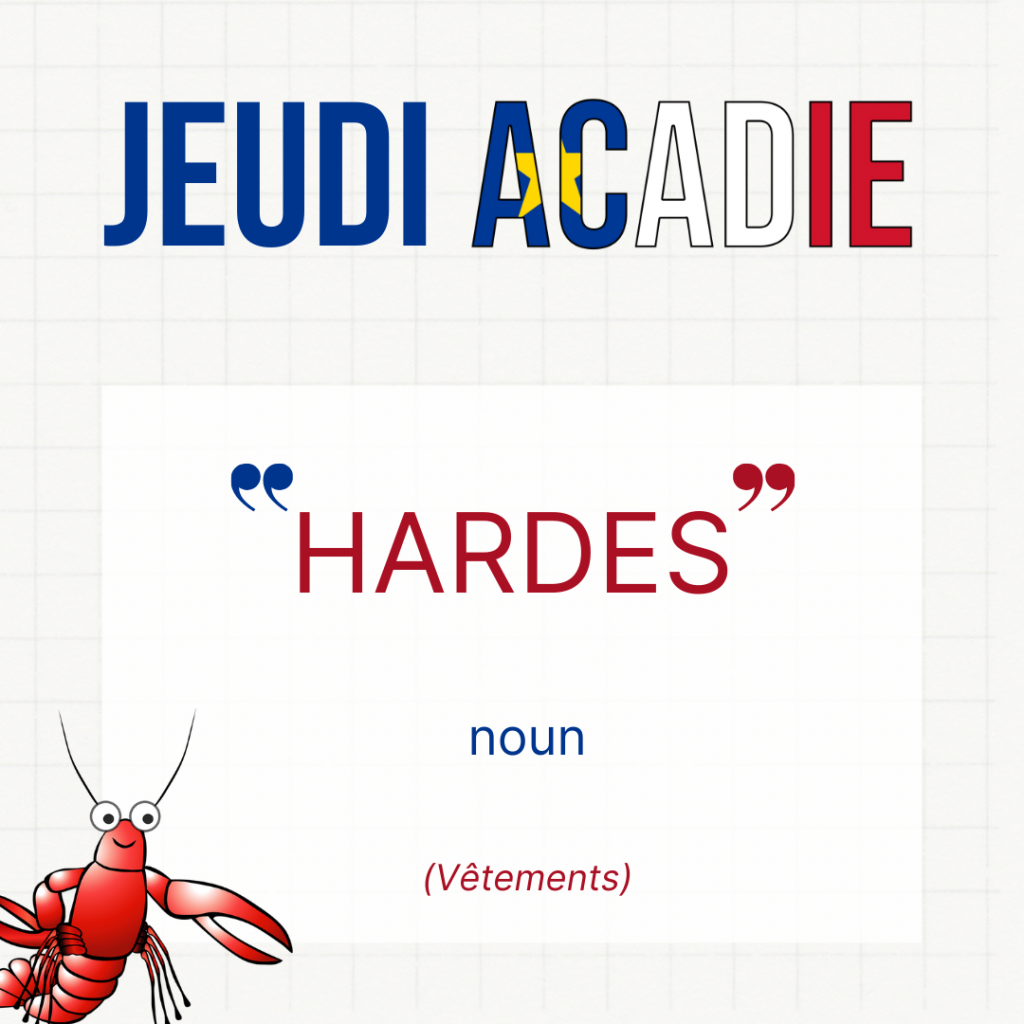
The noun “hardes” means “clothes”.
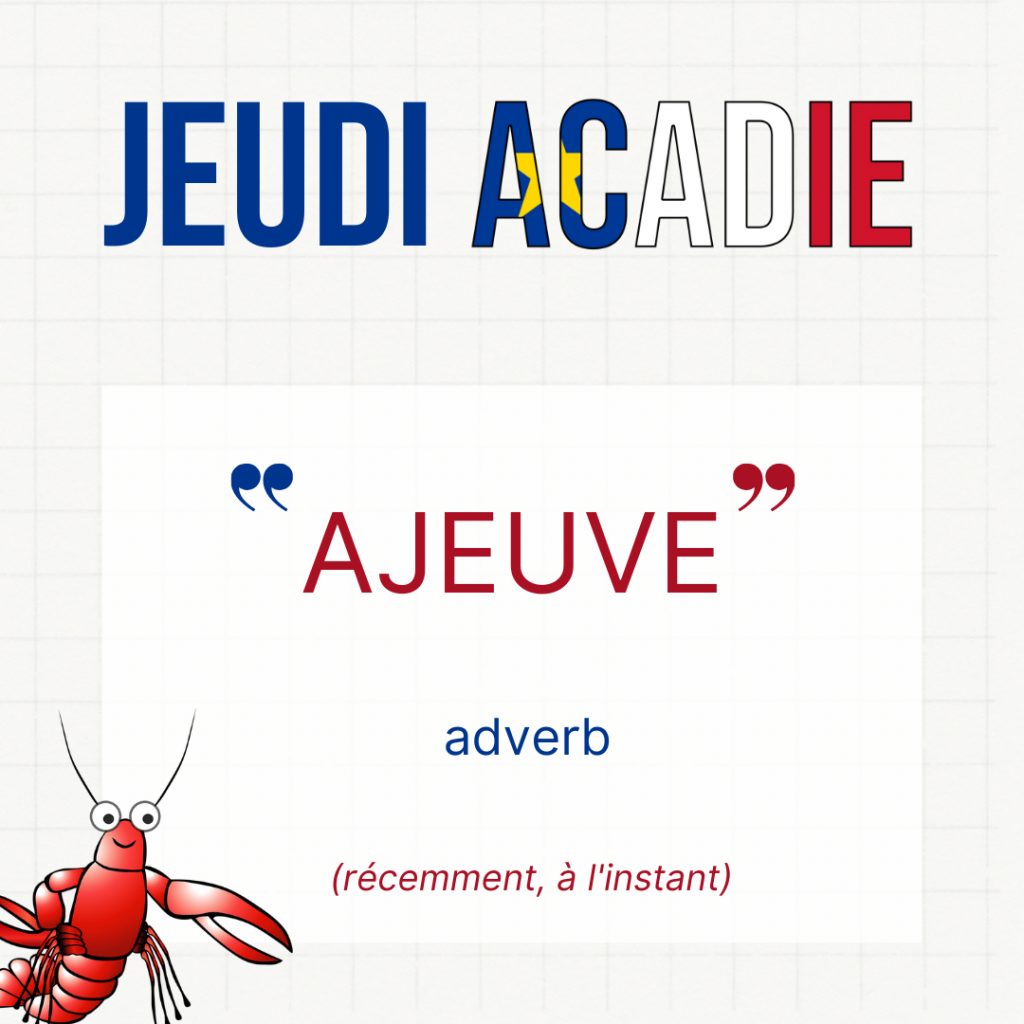
The adverb “ajeuve” means “recently”. For example, " j'ai fais ça ajeuve " (I did that recently).
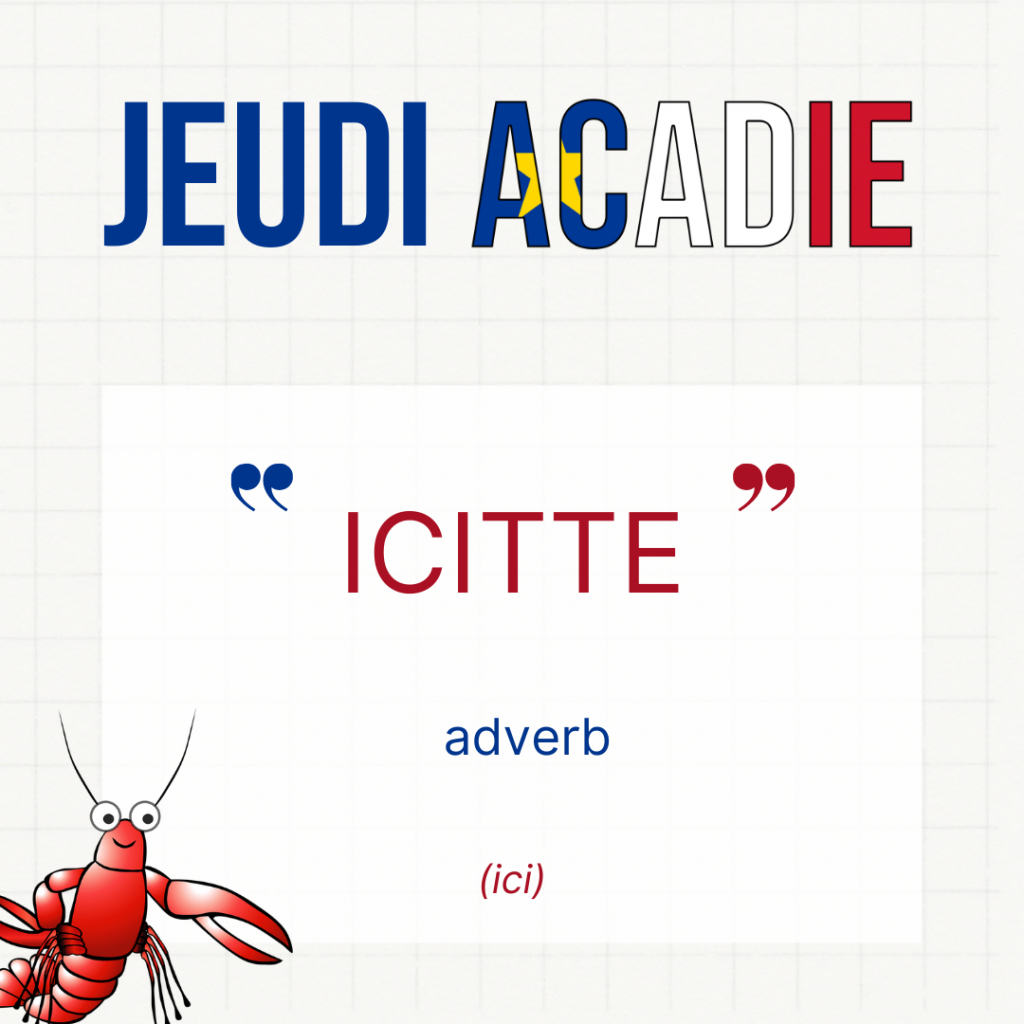
The adverb “icitte” means “here”. For example, "Icitte c'est chez nous !" (Here is our home!).
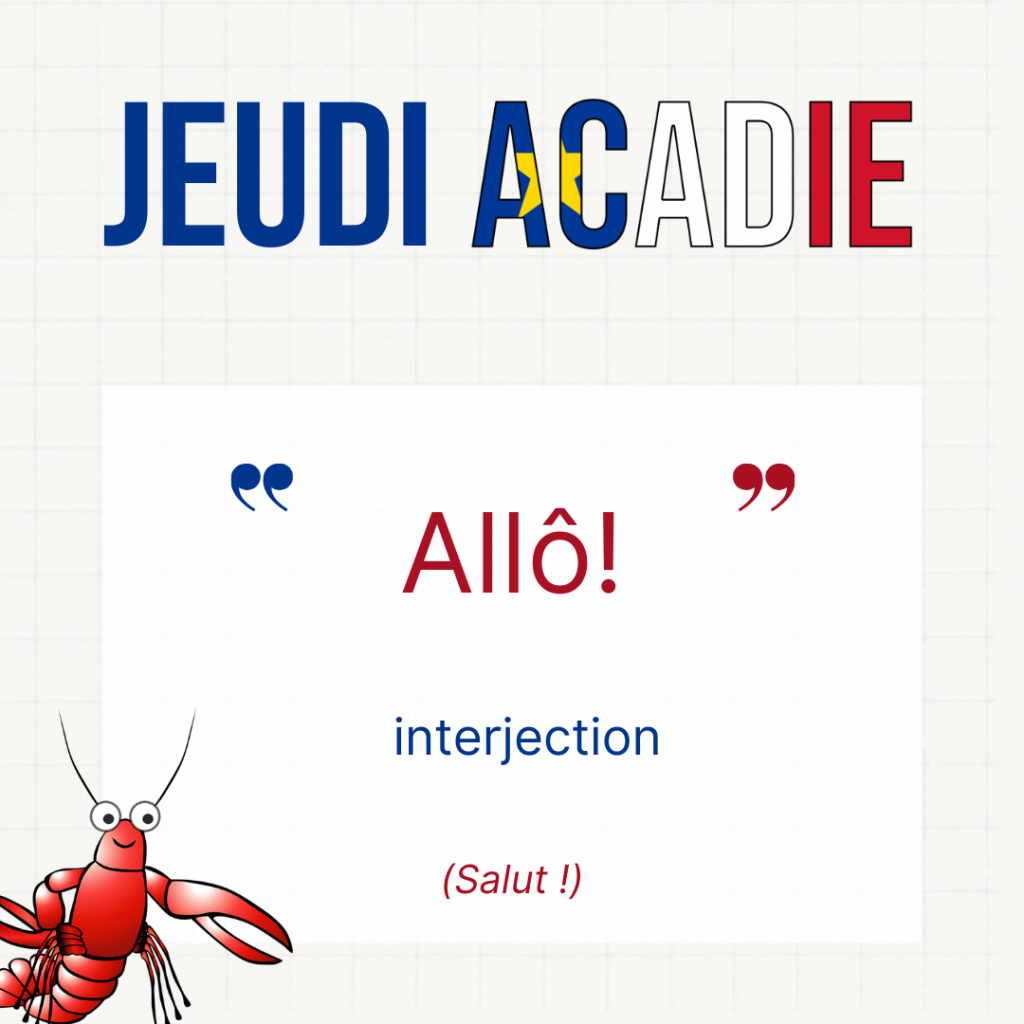
The interjection "Allô!" means ''Bonjour'.'. You'll hear many people around here use it to say "Hello!" or "Hi!".
.
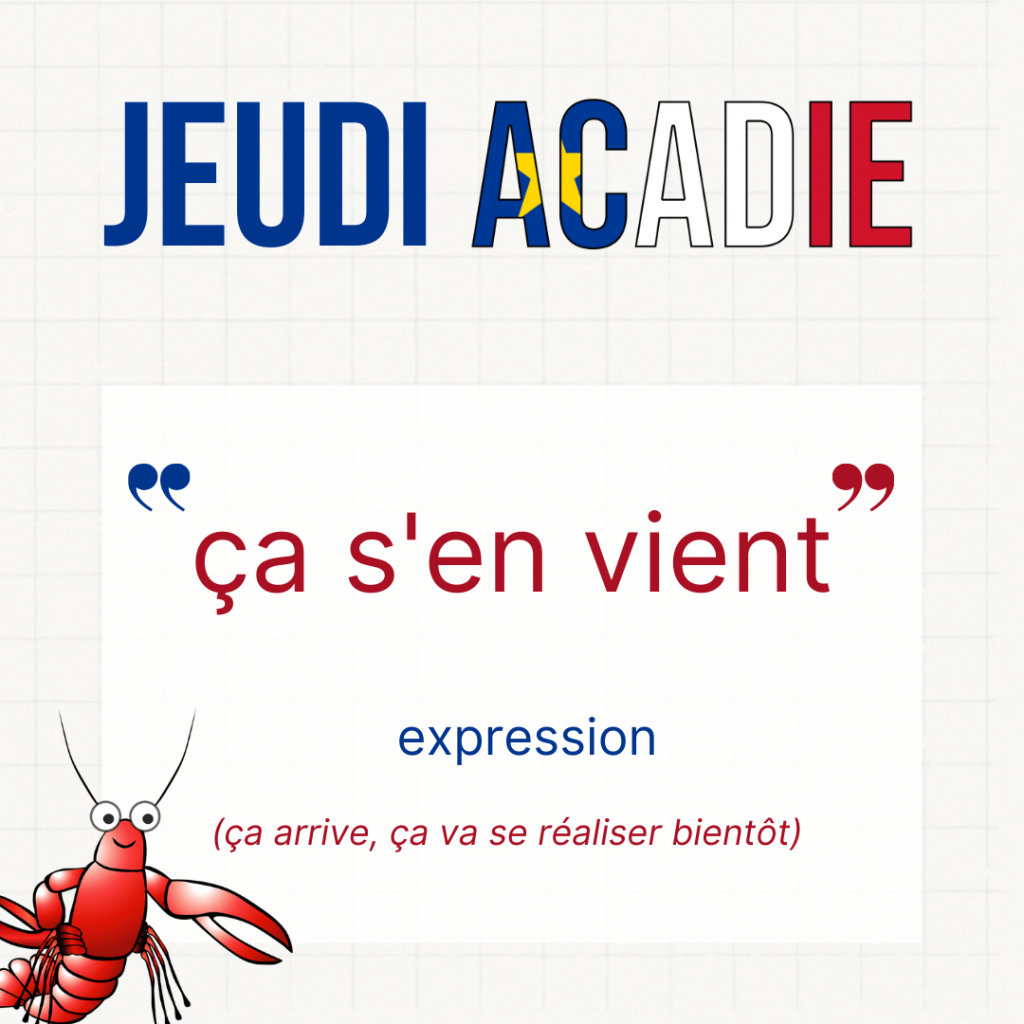
The expression "Ca s'en vient" means "it's coming/it's going to happen soon". For example, "De beaux évènements s'en viennent en 2023." (Some great events are coming up in 2023.)
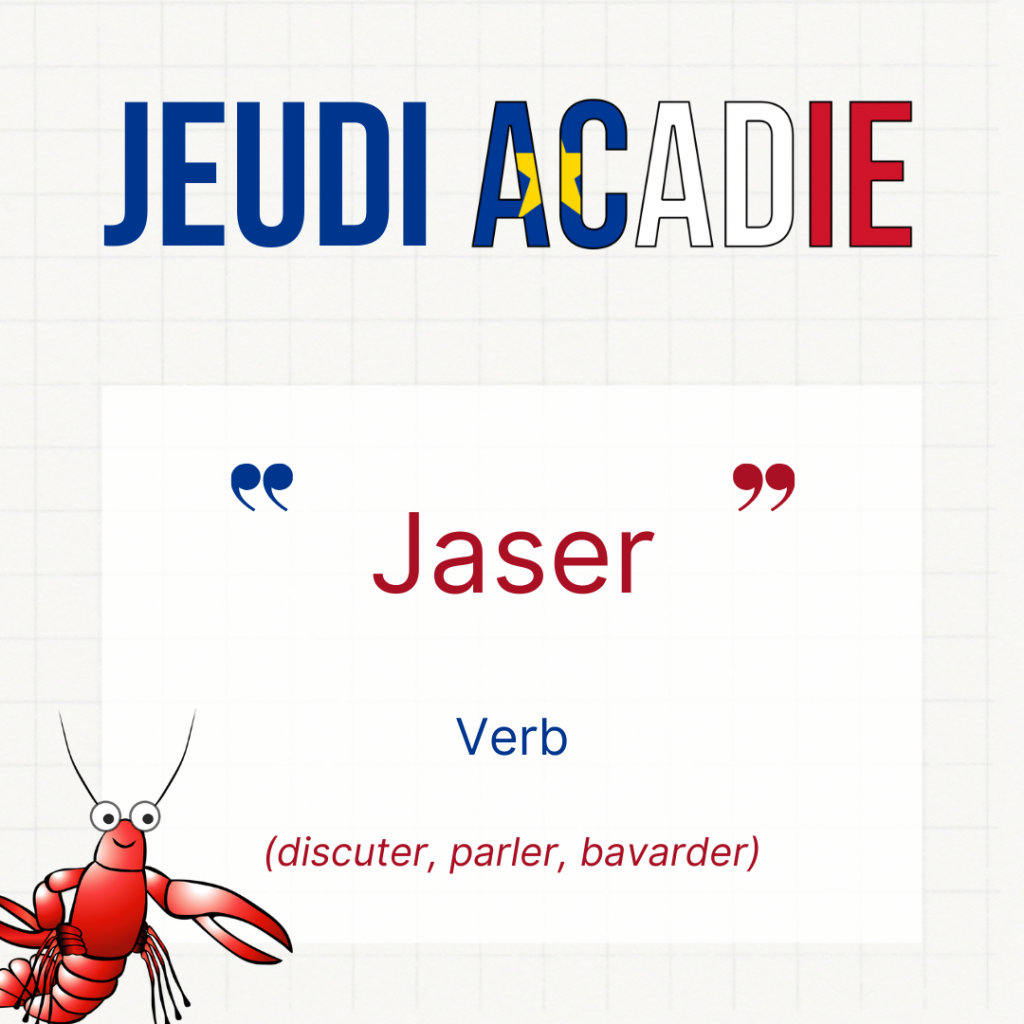
The verb '' Jaser '', means ''to discuss/talk/chat''. For example,''On a jasé au téléphone pendant des heures ''(We talked on the phone for hours.)
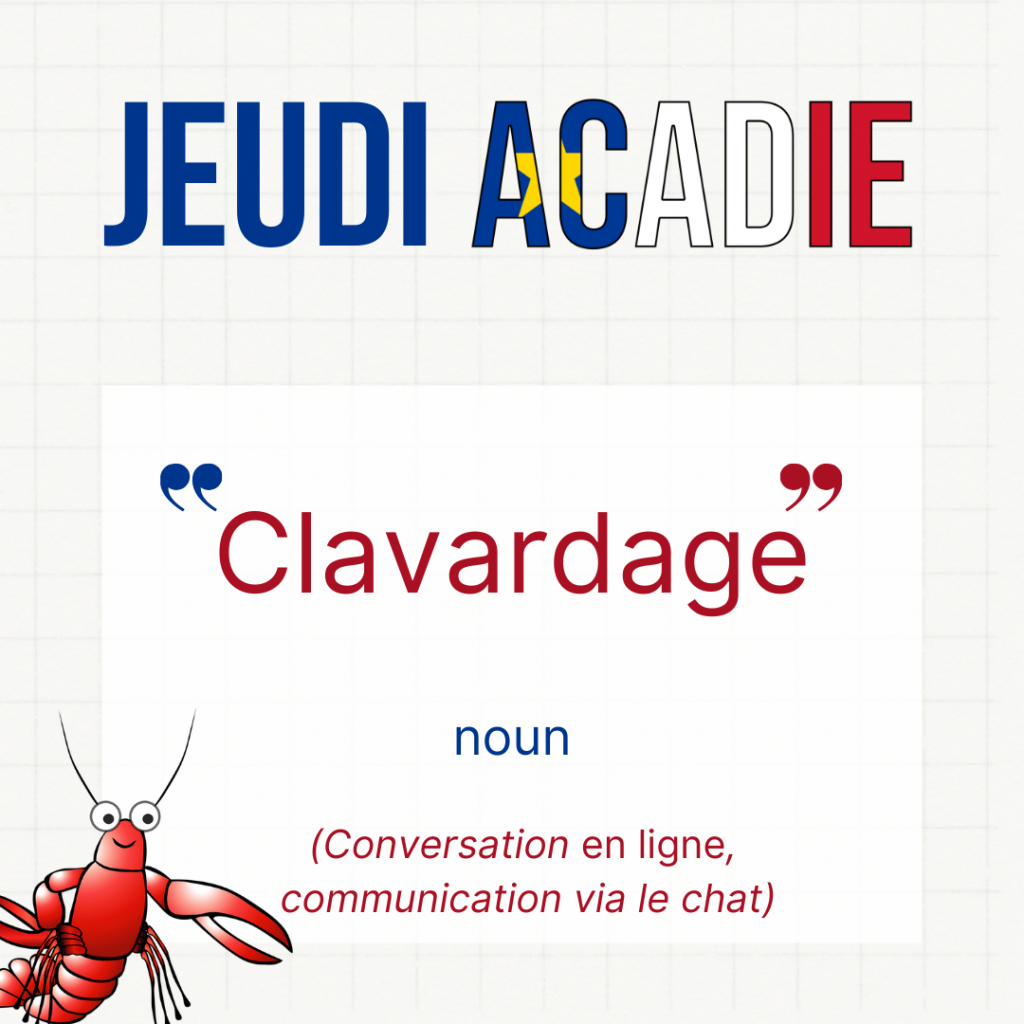
The noun '' clavardage ''refers to the instant messaging. For example, '' Vous pouvez utiliser le clavardage pour poser vos questions à l’intervenant '' (You can use the chat feature to ask your questions to the lecturer.)
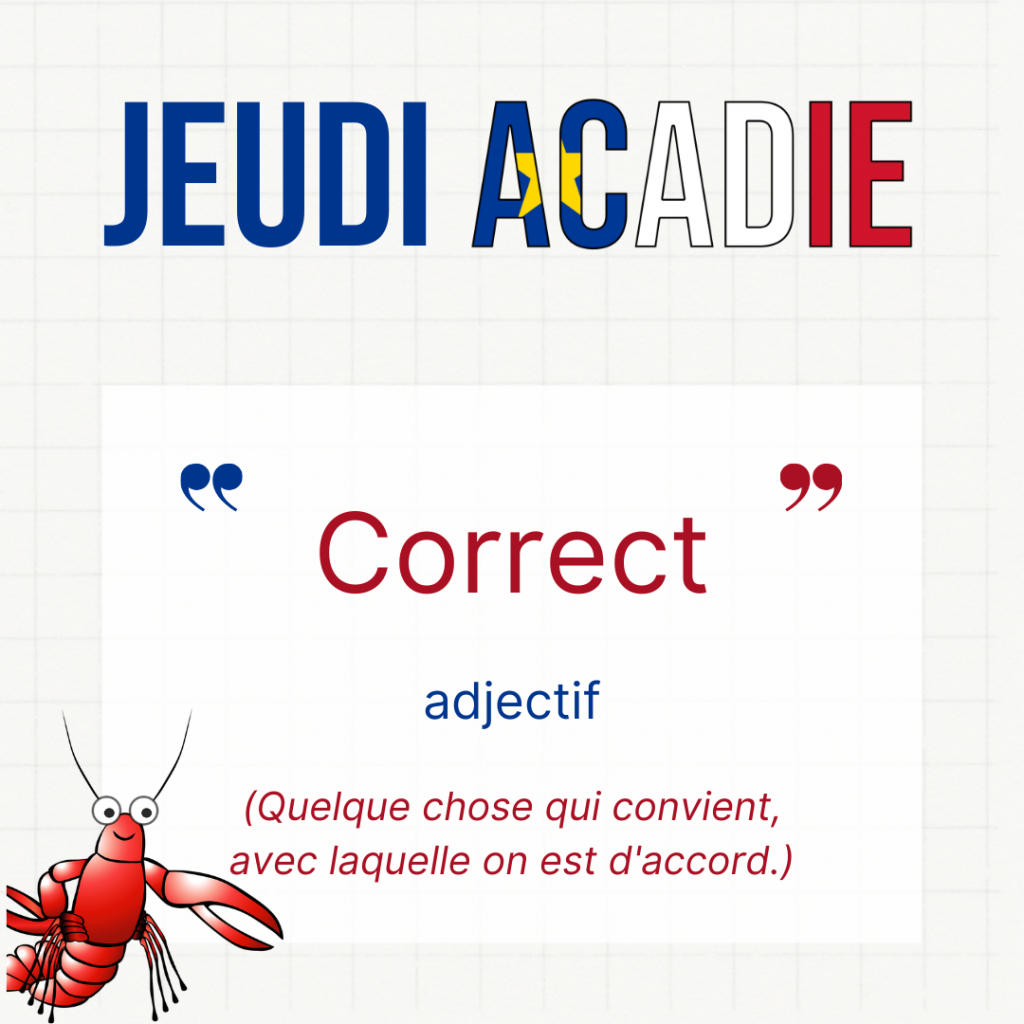
The adjective '' correct '', allows to state that something works, you agree with, or something is really good.” For example, ''C'est correct si je passe te chercher à six heures ? - J’suis ben correcte avec ça”. (-Is it okay if I pick you up at six? - That's fine by me.)
